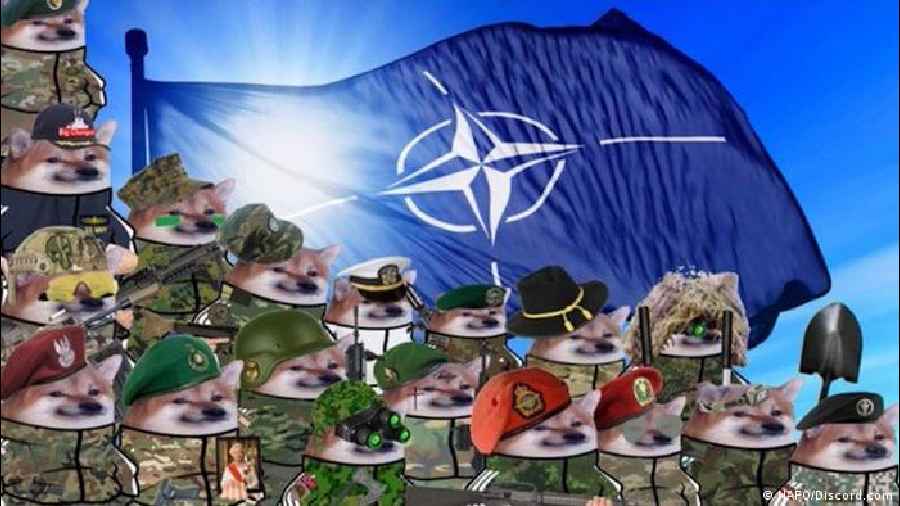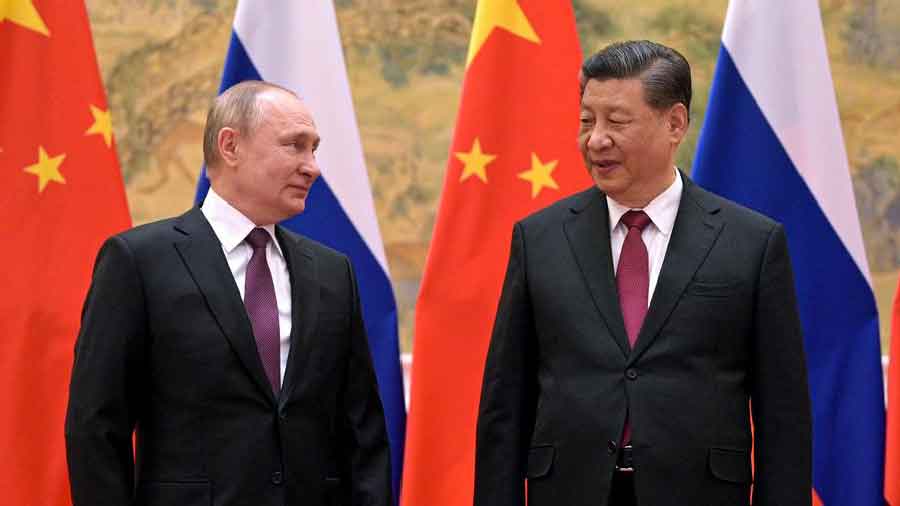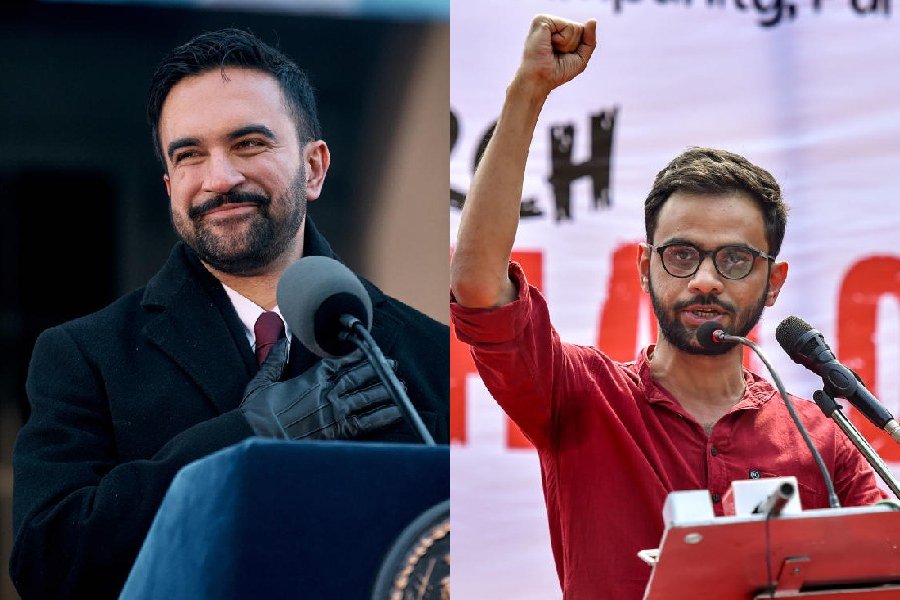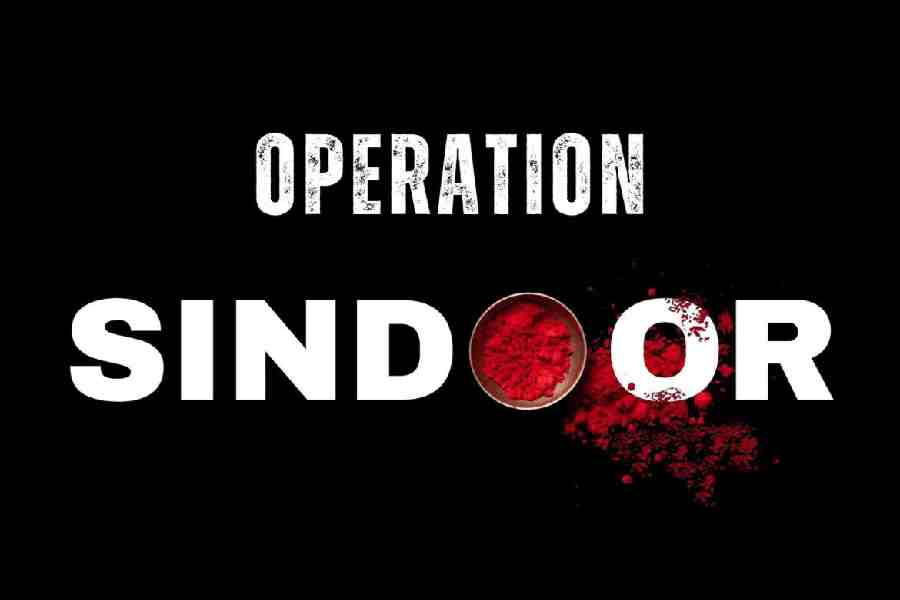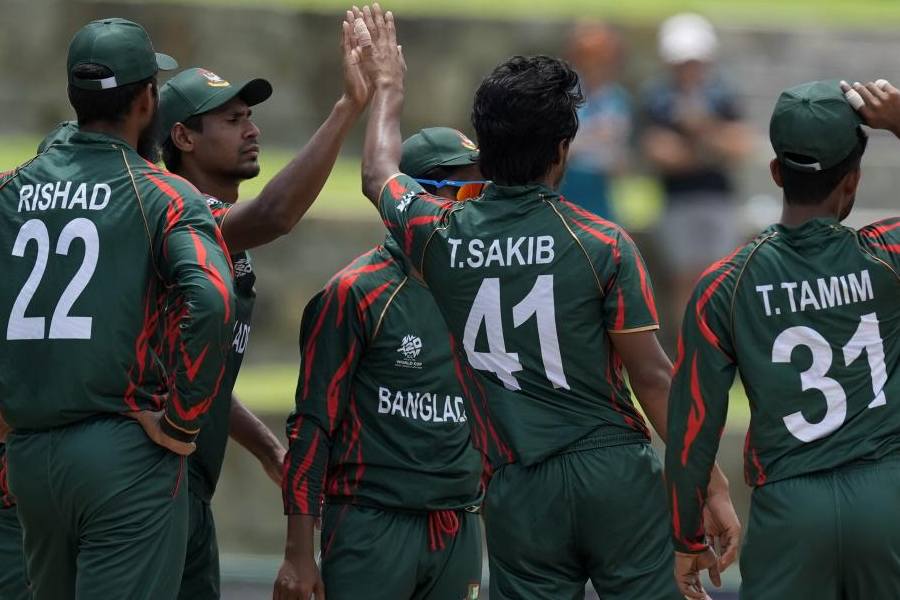A single tweet in May launched an online movement that has become the kryptonite of the pro-Russian trolls that have long ruled corners of the internet.
"For many years, Russia has been waging a serious information war globally," said Ivana Stradner, a NAFO member, advisor to the Foundation for Defense of Democracies, and writer for the Kyiv Post newspaper.
At the start of the Ukraine war in February, the West had done little to counter Russia's fake news with "offensive information operations," she added.
This information war imbalance has been corrected to an extent by NAFO, or the North Atlantic Fella Organization, a play on NATO that creates humorous memes to satirize Russian claims, for example, that it is not invading Ukraine but simply liberating it from Nazis — ironic considering Ukraine has a Jewish president.
With Russia justifying its invasion as a pushback against NATO expansion, the fellas like to claim that "NAFO expansion is non-negotiable."
NAFO rose up spontaneously in May when the Twitter account @Kama_Kamilia offered a custom "fella" — a Shiba Inu dog avatar — to collect donations to the Georgian Legion that supports the Ukrainian military.
A gender-neutral dog cartoon character inspired by the long-running "doge" internet meme, the fella soon became the mascot for pro-Ukrainian mockery of "vatniks" who spearhead Russian propaganda online.
An especial focus is the "whataboutism" of professed anti-imperialists who justify Russian aggression in light of past NATO-led wars in the Balkans or Iraq.
One month after NAFO was born, Russian ambassador to the IAEA Mikhail Ulyanov was drawn into a debate with a pack of fellas that significantly raised their profile across the internet.
As Stradner wrote in a Tweet: "#NAFOfellas use the most powerful weapons: (un)sophisticated memes and satire to hurt the feelings of sensitive Russian trolls. And yes, we will win the info war."
Mockery over truth-telling
Jordan Maris, head of the #NAFO delegation to the European Parliament, where he also works as a researcher, said previous attempts to combat Russian propaganda with truth were rarely effective.
"A lie can get halfway around the world before the truth can even put its trousers on," Maris told DW, referring to a famous quote often attributed to former British Prime Minister Winston Churchill.
So why are the NAFO memes mocking pro-Russian accounts so powerful?
"We aren't trying to disprove their propaganda, because it's extremely easy to make up lies and very hard to disprove them," he explained. "Instead we are openly mocking them."
Stradner said that countering official Russian narratives with ridiculous cartoon dogs has been effective, in part, because "humor is tremendously important for the Russian society."
Instead of debunking Russian claims, NAFO launches memes against Russian diplomats that are "so absurd that they cannot really counter that and respond," she said. "This is where I think NAFO is doing quite a marvelous job."
United in battle for Ukraine's self-determination
NAFO's outsized impact also relates to its evolution as a diverse global movement with aligned goals — namely Ukrainian self-determination, said Maris.
NAFO are not paid trolls in the service of a government, but rather a grassroots and spontaneous movement.
"The diversity of NAFO is also proof of the organic nature of our movement," Maris explained. "Politicians, ambassadors, former prime ministers, academics, anarchists, disabled pensioners, ex-army officers, farmers and engineers that are old and young, left and right, and of all colors, origins, genders and sexualities," make up its cross-cultural membership, he said.
As opposed to Russian bots who act as individuals with independent opinions, NAFO members profess solidarity and a common cause. "All of us felt powerless when the war broke out, all of us wanted to do something to help. That is what brings us together," said Maris.
An appreciation of the fact that "someone is standing up to Russian bullies and propagandists online" has also helped, in addition to "a very talented pool of people" making both memes and detailed videos that bring attention to the war.
Can online troll armies help win the war?
The Ukrainian Defense Ministry has also reserved special mention for their online warriors fighting Russian trolls.
"We usually express gratitude to our international partners for the security assistance," the ministry wrote in a tweet. "But today we want to give a shout-out to a unique entity — North Atlantic Fellas Organization #NAFO. Thanks for your fierce fight against Kremlin's propaganda & trolls. We salute you, fellas!"
Ukrainian Defense Minister Oleksii Reznikov then proudly adopted his own dog avatar, a sign of the importance of information warfare.
"One of the reasons NAFO is so important for many of us is because it levels the playing field, and gives us the means to actually fight back," said Maris.
With only 3% of Russians using Twitter, the main NAFO platform, Stradner said the movement's ultimate success will depend on raising its profile across other social media platforms like Facebook or Telegram.
And despite NAFO's remarkable rise, Maris said the focus should remain the Ukrainian people who he said are defending all of Europe against potential Russian aggression.
"Countries around the world must provide Ukraine with everything it needs to win, including modern tanks and jets. As for the propaganda war, leave that to us!"

